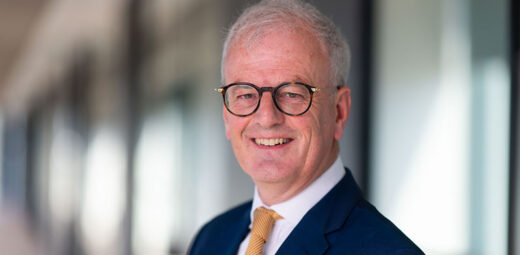In this week’s episode of HJ Talks About Abuse, Partner Alan Collins and Sam Barker discuss the all too common problem of abuse of children in sports by people who have been placed in positions of trust.
Former youth football coach Bob Higgins has been jailed for 24 years and three months for abusing young players.
Higgins sexually touched and groped 24 victims, most of the trainees at Southampton FC and Peterborough United.
He was found guilty at a retrial of 45 counts of indecent assault between 1971 and 1996. He was convicted of another count last year.
Judge Peter Crabtree called Higgins a “predatory, cunning” serial sex abuser who “carefully groomed” the teenagers.
Higgins’ victims told Winchester Crown Court of suicidal thoughts and relationship problems later in life.
An emotional statement, read by Dean Radford on behalf of the victims on the steps of the court, said Higgins’ “arrogance was his downfall”.
“You can call us brave, you can call us courageous – we were not – we were the unlucky ones for falling into the entrapment of Higgins’ manipulative, deceitful and sexual behaviour,” it said.
During Higgins’ trial, prosecutors told the court he was “idolised” by trainees, who viewed him as a mentor and father figure.
Victims said they were abused during post-exercise soapy massages, in Higgins’ car while he played love songs on the stereo and at his home where he cuddled with boys on his sofa.
Judge Crabtree said Higgins had shown “not one jot of remorse”.
“They believed you held the key to their futures,” he told the defendant.
“You normalised cuddling and stroking, which paved the way for more intimate abuse.
“For many, the impact extended to their performance on the field or to turning their backs on a football career. Some of them suffered severe psychological harm.”
In the USA there have been several very high profile cases.
Former USA Gymnastics doctor Larry Nassar, the former doctor whose serial sexual abuse of girls and young women has shaken the gymnastics world was sentenced in February to a prison term of 40 to 125 years behind bars for molesting young athletes at an elite Michigan training centre.
Nassar pleaded guilty to penetrating girls with ungloved hands when they sought treatment for injuries at Twisters, a gymnastics club that was run by a 2012 US Olympic coach. Nassar has already been sentenced to 40 to 175 years in prison in another county and to a 60-year federal term for possession of child abuse images. He worked for Michigan State University and USA Gymnastics, which trains Olympians.
He has been accused of molesting more than 100 female athletes during the three decades he worked with USA Gymnastics.
Olympic gold medallists McKayla Maroney, Aly Raisman and Gabby Douglas are among the members of the USA Gymnastics team who have said they were sexually assaulted by Nassar.
Nassar’s case was part of a wide-ranging scandal which forced the resignation of USA Gymnastics chief Steve Penny in March. Penny was accused by victims of failing to quickly notify authorities about abuse allegations.
USA Swimming was engulfed in scandal in 2010 when a television news investigation revealed myriad cases of sexual misconduct of various forms by coaches.
Cases uncovered included Andy King, a coach who was sentenced to 40 years in prison after authorities discovered a pattern of sexual abuse that stretched over three decades at clubs up and down the West Coast and involved more than a dozen teenaged female victims – one of whom said she had an abortion after he got her pregnant when she was 14.
Another case involved a coach who installed a secret camera to film young women swimmers showering.
While more than 100 coaches were eventually banned for life from working for USA Swimming-affiliated clubs, the federation was blasted for an inadequate response to complaints that in some cases allowed coaches to evade their accusers and authorities, moving to new cities and gaining coaching jobs at new clubs where they continued predatory behaviour.
King, who was sentenced in 2010, had passed a USA Swimming background screening in 2008es the large numbers of victim s and potential victims.
Returning to the UK and the Higgins case it is reported that 741 victims have come forward to detail allegations against some 276 figures according to Operation Hydrant.
Sport provides an opportunity for sex offenders to isolate and groom their victims. It is no different from any other situation, for example, education, where the young person is effectively entrusted to another for their care and well-being. Education has simply made rapid progress in safeguarding and child protection, and it seems that the world of sport has to act fast to ensure that confidence in its institutions is not lost. What the recent sports cases reveal is that the offenders are quite brazen, and often their gossip about their behaviour which should have meant the red lights were flashing but if they were they were ignored.
The cost of child abuse in sport is immense both in human and financial terms. There is reputational damage as well as the damage suffered by the victims which sadly is often considerable and lifelong. The clubs will too often be vicariously liable for the actions of the offenders viz the abusers and will be required to pay compensation to the victims. Even if they are insured the cost still has to be met.






